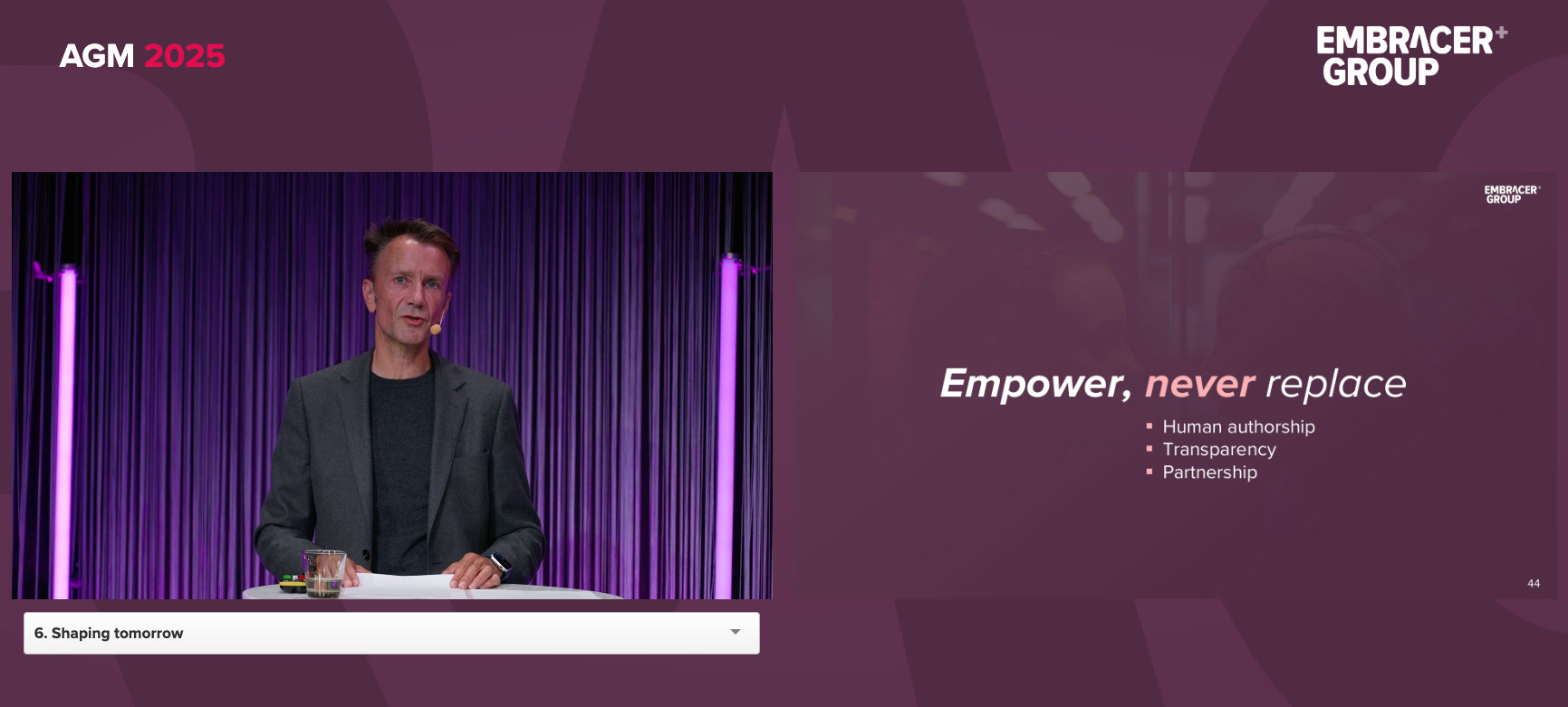A rare c-suite reality check on AI in game development, as Embracer CEO warns of potentially 'soulless' results
“We're committed to being transparent with players about how, where we use AI in our dev process.”
Many executives at big video game companies have stood in front of his or her investors and giddily promoted the potential of generative AI in game development.
More rare was the speech given by Phil Rogers, CEO of the Embracer Group since August, at his company’s annual shareholders meeting in Karlstad Sweden late last week.
Rogers was largely bullish on AI, but with more awareness than I’ve heard from his peers about AI’s potential problems.
His speech had plenty of AI buzzwords. Rogers called generative AI a “power multiplier” and a “strategic catalyst” for game development.
He called AI:
“…the most powerful technology or tool of our generation for driving efficiency, amplifying creativity, and ultimately delivering the high quality, memorable games our players demand.”
Of course he did, because AI is the thing CEOs talk about to excite investors and the embattled Embracer group certainly needs to do some of that.
(Quick refresher: Embracer is the Swedish gaming conglomerate that owns the Lord of the Rings franchise and Tomb Raider studio Crystal Dynamics. Its biggest release this year was Kingdom Come: Deliverance II. The company has been in divestment and layoff mode for the past couple of years, selling off Saber Interactive and Gearbox, its headcount dropping from 14,000 employees to 7,000. Earlier this year, it spun off trading card/tabletop game company Asmodee and plans to spin off a second company composed of many of its small-/mid-sized studios. That will leave Embracer to be re-branded as Fellowship Entertainment, which will focus on big-budget games).
Rogers also said this during his AI speech last week:
“We see the headlines, we hear the concern from players and developers alike, but we believe the greatest risk is not in using AI, but in using it without a strong ethical framework.”
That sentiment feels pretty up-to-date.
Game developers are worried about AI taking their jobs.
Players have called out instances of AI generating slop in games. And they are so on guard about AI’s use in game creation that there’s been a rise of false claims about game studios using AI, which studios have rushed to refute—to avoid the AI gaming stigma.
Proponents of generative AI in games have promoted the potential for the tech to generate game characters who have infinite things to say and for the tech populate worlds with infinite things to do.
At the annual meeting last week, Rogers continued with his reality check about what generative AI can do for video games:
“Players aren't longing for generic, soulless side quests or synthetic AI voices,” he said.
How about that? A gaming executive floating that generative AI might produce dull, artless work?
Rogers also said “artists, actors, writers need protection from plagiarism” that could be committed using the technology.
He shared some company standards around AI:
Keep reading with a 7-day free trial
Subscribe to Game File to keep reading this post and get 7 days of free access to the full post archives.



